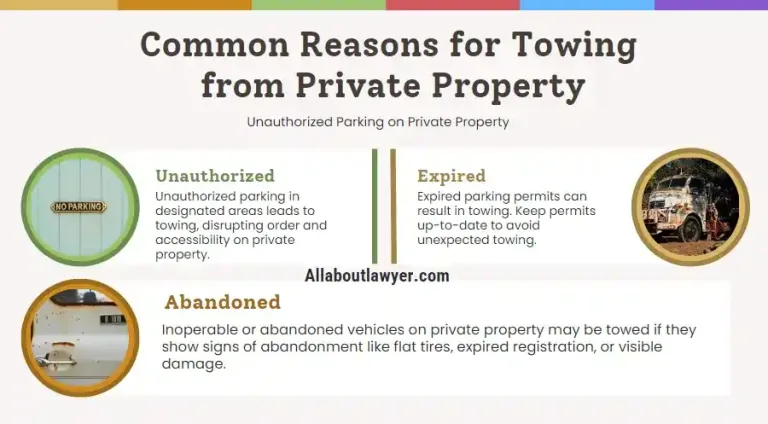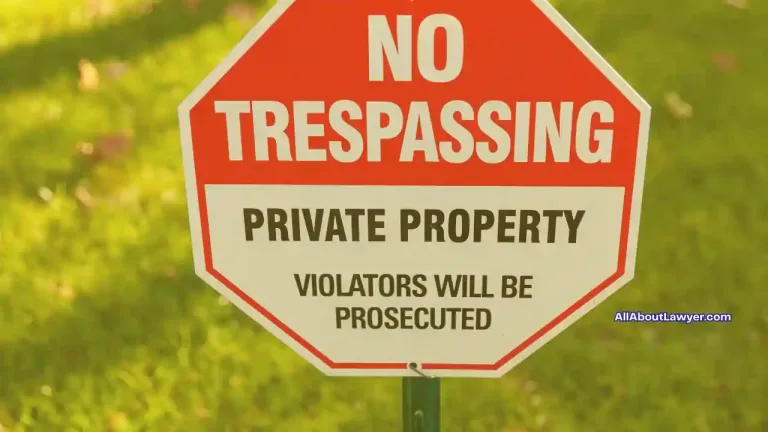Minnesota Towing Laws on Private Property | Rights, Regulations, and Remedies
Getting towed from private property in Minnesota can be a frustrating and costly experience. This article aims to clarify the legal area that surrounding private property towing in the North Star State, empowering vehicle owners with knowledge of their rights and responsibilities. Whether you’re a resident or visitor, understanding these laws can help you avoid unnecessary hassles and know how to respond if your vehicle is towed and understand Minnesota Towing Laws on Private Property.
Table of Contents
Understanding Towing Authorization
Property Owner’s Consent
In Minnesota, a vehicle can only be towed from private property with the explicit authorization of the property owner or their designated agent. This crucial regulation helps prevent unauthorized or predatory towing practices.
Key points:
– Property owners must give consent for towing
– Authorized agents (e.g., property managers, security personnel) can also initiate towing
– Towing without proper authorization may be considered illegal
Signage Requirements
Minnesota law mandates that private property owners display clear and conspicuous signage notifying vehicles of towing risks for unauthorized parking. This requirement ensures that vehicle owners are adequately warned before parking in potentially restricted areas.
Signage must include:
– Clear indication of parking restrictions
– Warning of potential towing
– Contact information for the towing company (if applicable)
Without proper signage, a tow may be considered unlawful.
Common Reasons for Towing from Private Property
Unauthorized Parking
Vehicles parked in unauthorized areas are subject to towing. This includes:
– Designated “No Parking” zones
– Fire lanes
– Handicap spots (without proper permits)
– Reserved parking spaces
Unauthorized parking disrupts order and accessibility on private property, prompting property owners to enforce these rules strictly.

Expired Permits
Vehicles displaying expired parking permits for a specific property (e.g., apartment complex, office building) can be towed. It’s crucial to keep your parking permits up-to-date to avoid unexpected towing.
Abandoned Vehicles
Vehicles left inoperable or seemingly abandoned for an extended period on private property are at risk of towing. Property owners may consider these vehicles a nuisance or safety hazard.
Signs of abandonment may include:
– Flat tires
– Expired registration
– Visible damage or disrepair
Related Articles For You:
Kentucky Property Right-of-Way Laws
Your Rights During Towing
Requesting Information
If you catch a tow truck in the act of towing your vehicle, you have the right to request information from the driver. This includes:
– The towing company’s name and contact information
– The reason for the tow
– The location where your vehicle will be stored
Understanding your rights can help you navigate the situation more effectively and potentially dispute an unauthorized tow.
Payment Options
Before retrieving your towed vehicle, inquire about acceptable payment methods for towing and storage fees. Many towing companies accept various forms of payment, including:
– Cash
– Credit cards
– Debit cards
– Certified checks
Knowing your payment options in advance can help you avoid delays in retrieving your vehicle.
Dispute Resolution
Contacting the Property Owner
If you believe the tow was unauthorized or unjustified, attempt to resolve the issue with the property owner directly. This approach can often lead to a quicker and less costly resolution.
Steps to take:
1. Gather all relevant information (time, date, location of tow)
2. Document the scene with photos if possible
3. Contact the property owner or manager
4. Explain your situation calmly and provide evidence

Small Claims Court
As a last resort, you can consider filing a small claims court case to recover towing and storage fees if the tow was deemed unlawful. This option should be pursued only after attempting to resolve the issue directly with the property owner or towing company.
Factors to consider before filing:
– Cost of filing fees
– Time investment required
– Strength of your case
Avoiding Towing Hassles
To minimize the risk of getting towed, follow these best practices:
– Always pay attention to parking signs and regulations in private property areas
– Ensure your parking permits for private properties are up-to-date
– Avoid parking in unauthorized areas, fire lanes, or handicap spots designated for others
– If your vehicle becomes inoperable, contact the property owner immediately to explain the situation
Conclusion
Understanding Minnesota towing laws on private property can help you avoid unnecessary towing and manage situations if your vehicle is towed. Remember to always park in authorized areas, keep your permits current, and be aware of posted signage. If you have concerns or face a dispute, document all details thoroughly and consider seeking legal consultation for guidance.
By staying informed about your rights and responsibilities, you can navigate the complexities of private property towing laws in Minnesota with confidence. Being proactive and aware can save you from the stress, time, and financial burden associated with unexpected towing.
FAQs
Can I get towed from private property in Minnesota without warning?
Generally, no. Clear and conspicuous signage must be present to warn of potential towing. If the signage is not visible or is unclear, towing might be considered unlawful.
What should I do if my car gets towed from private property in Minnesota?
1. Contact the towing company to locate your vehicle
2. Inquire about towing and storage fees
3. Gather necessary documents (ID, proof of ownership)
4. If you believe the tow was unauthorized, document details and consider contacting the property owner
How much does it cost to get my car towed from private property in Minnesota?
Towing and storage fees vary by company and location. It’s advisable to inquire about specific fees and payment options before retrieving your vehicle. Be prepared for potential additional charges for after-hours retrieval or extended storage.
Can I dispute a tow if I believe it was unauthorized?
Yes, you can dispute a tow if you believe it was unauthorized. Start by contacting the property owner and explaining your situation. If you can’t reach a resolution, consider seeking legal advice or filing a claim in small claims court.
How long does a towing company have to report a towed vehicle in Minnesota?
Towing companies must report towed vehicles to local law enforcement within two hours of the tow. This helps vehicle owners locate their cars if they believe they’ve been stolen.
Disclaimer: This guide is intended for informational purposes only and does not constitute legal advice. Laws and regulations may change, so always consult with a qualified legal professional for the most up-to-date and accurate information regarding your specific situation.
About the Author

Sarah Klein, JD, is a former civil litigation attorney with over a decade of experience in contract disputes, small claims, and neighbor conflicts. At All About Lawyer, she writes clear, practical guides to help people understand their civil legal rights and confidently handle everyday legal issues.
Read more about Sarah

I live in a condo and have a assigned space #309 Vehicle was towed because licensed tab expirered
MN says that 90 days, we cant find it Car is in my sisters estate . her car is registered for the spot #309 too. Its my assigned space and yet the tow company took the vehicle I want to be reinburst because it is my space, and registered too.